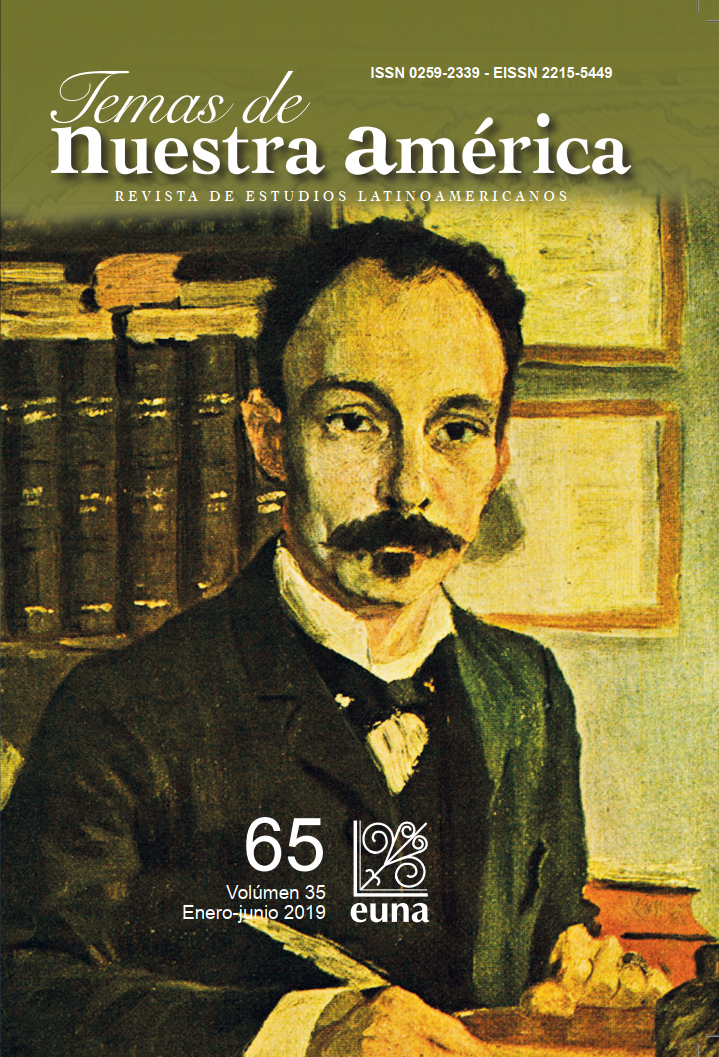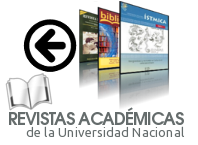Perlongher’s Theoretical Legacy and the Contemporary Discussions on Sexual Dissidence in Latin America
DOI:
https://doi.org/10.15359/tdna.35-65.11Keywords:
Contemporary Latin American philosophy, Gender Studies, Queer theory, Critical theoryAbstract
This essay addresses, from a perspective focused on the last decade, certain conceptual developments of the Latin American philosophy in regards to sexual dissent. Given the extent and complexity of the scope of the study, emphasis is placed on those contemporary researchers that made use of Néstor Perlongher’s theoretical contributions (Argentina, 1949-1992), essayist, poet and pioneer activist on the analysis of the links between identity, sexuality, marginalization and counterhegemonic practices in order to create conceptual references suitable for the regional context. When addressing these issues, the review of the links between such theoretical models and the Queer Theory becomes unavoidable
References
Conley, T. (2010). Toward a Rhetoric of Insult. Chicago: The University of Chicago Press.
Echavarran, R. (2007). Fuera de género. Criaturas de la invención erótica. Buenos Aires: Losada.
Epps, B. (2008). Retos, riesgos, pautas y promesas de la teoría queer. Revis¬ta Iberoamericana. LXXIV (225), 897-920.
Falconí-Trávez, D. (2014). De lo queer/ cuir/cuy(r) en América Latina. Accidentes y malos entendidos en la narrativa de Ena Lucía Portela. Mitologías hoy. Revista de pensamiento, crítica y estudios lati¬noamericanos. (10), 95-113.
Falconí-Trávez, D., Castellanos, S. y Viteri, M.A. (2013). Resentir lo queer en América Latina. Diá¬logos desde/con el Sur. Por D. Falconí-Trávez, S. Castellanos y M.A. Viteri (Eds.) Resentir lo queer en América Latina. Diálogos desde/con el Sur. (9-20). Barcelo¬na-Madrid: Egales.
Iosa, T. (2012). Leticia Sabsay, (Prólogo de Judith Butler) (2011) Fronteras sexuales. Espacio urbano, cuerpos y ciudadanía, Buenos Aires: Ed. Paidós, 176 p. [Reseña bibliográ¬fica]. Estudios. (27), 151-155.
Mihanovich, S. (2014). Soy lo que soy. Muje¬res y hombres que rompieron el molde. Buenos Aires: Random House.
Perlongher, N. (2008). Prosa plebeya. En¬sayos 1980-1992. Buenos Aires: Colihue.
Sabsay, L. (2008). Deseo y discurso en el sujeto (feminista) de la perfor¬matividad. Por L. Arfuch y G. Catanzaro (Comps.) Pretérito im¬perfecto. Lecturas críticas del acon¬tecer. (187-218). Buenos Aires: Prometeo.
_____. (2016). The Political Imaginary of Sexual Freedom. Subjectivity and Power in the New Sexual Democra¬tic Turn. Londres: Springer.
Santos, L. (2014). Eva Perón: One Wo¬man, Several Masks. Por S. Hart y R. Young (Eds.) Contemporary La¬tin American Cultural Sudies. (102- 115). Nueva York: Routledge.
Vásquez, G.D. (2008). Cuerpos a la de¬riva: del andrógino al prostituto masculino. Dos novelas: Ave roc (1994) y Julián, el diablo en pelo (2003), de Roberto Echavarran. Por B. Ferrús y N. Calafell (Eds.) Escribir con el cuerpo. (125-136). Barcelona: UOC.
Vidal-Ortiz, S., Viteri, M.A. y Serra¬no-Amaya, J.F. (2014). Resigni¬ficaciones, prácticas y políticas queer en América Latina: otra agenda de cambio social. Nóma¬das. (41), 185-201.
Downloads
Published
How to Cite
Issue
Section
License
Esta obra de Revista Temas de Nuestra América está bajo una Licencia Creative Commons Atribución-NoComercial-SinDerivar 4.0 Internacional.
Cualquier permiso que trascienda dicha licencia, debe solicitarse por escrito a la persona directora de la Revista










